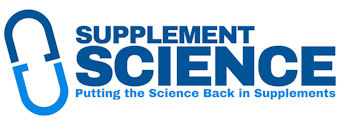What is Resveratrol?
Resveratrol is a phytoalexin derived from grapes and other food products with antioxidant and potential chemopreventive activities. Resveratrol induces phase II drug-metabolizing enzymes (anti-initiation activity); mediates anti-inflammatory effects and inhibits cyclooxygenase and hydroperoxidase functions (anti-promotion activity); and induces promyelocytic leukemia cell differentiation (anti-progression activity), thereby exhibiting activities in three major steps of carcinogenesis. This agent may inhibit TNF-induced activation of NF-kappaB in a dose- and time-dependent manner. (NCI05) –
Pharmacology from NCItResveratrol is a plant polyphenol found in high concentrations in red grapes that has been proposed as a treatment for hyperlipidemia and to prevent fatty liver, diabetes, atherosclerosis and aging. Resveratrol use has not been associated with serum enzyme elevations or with clinically apparent liver injury. –
LiverTox Summary from LiverToxResveratrol is a polyphenolic phytoalexin. It is also classified as a stilbenoid, a derivate of
stilbene, and is produced in plants with the help of the enzyme
stilbene synthase. The levels of resveratrol found in food varies greatly. Red wine contains between 0.2 and 5.8 mg/L depending on the grape variety, while white wine has much less. The reason for this difference is that red wine is fermented with grape skins, allowing the wine to absorb the resveratrol, whereas white wine is fermented after the skin has been removed. Resveratrol is also sold as a nutritional supplement. A number of beneficial health effects, such as anti-cancer, antiviral, neuroprotective, anti-aging, anti-inflammatory and life-prolonging effects have been reported for resveratrol. The fact that resveratrol is found in the skin of red grapes and as a constituent of red wine may explain the “French paradox”. This paradox is based on the observation that the incidence of coronary heart disease is relatively low in southern France despite high dietary intake of saturated fats. Resveratrol is thought to achieve these cardioprotective effects by a number of different routes: (1) Inhibition of vascular cell adhesion molecule expression; (2) Inhibition of vascular smooth muscle cell proliferation; (3) Stimulation of endolethelial
nitric oxide synthase (eNOS) Activity; (4) Inhibition of platelet aggregation; and (5) Inhibition of LDL peroxidation (PMID:
17875315,
14676260,
9678525). –
Metabolite Description from Human Metabolome DatabaseFrom pubchem.ncbi.nlm.nih.gov
Benefits
“Early evidence shows that applying a gel containing resveratrol to the face might reduce the severity of acne.”
“Early research suggests that taking a combination product containing resveratrol, vitamin C, zinc, and flavonoids slightly reduces coughing and mucus production in people with COPD.”
“Some research suggests that taking 5 mg of resveratrol twice daily for 4 weeks does not affect insulin levels in people with diabetes. However, other evidence shows that taking a specific product that contains resveratrol (Biofort) daily for 3 months reduces blood sugar, blood pressure and fat levels in the blood.”
“Resveratrol might expand blood vessels and reduce the activity of cells important in blood clotting. Some research suggests that resveratrol has weak estrogen (a female hormone) effects. It may also decrease pain and swelling (inflammation).”
References
https://medlineplus.gov/druginfo/natural/307.html
Safety Concerns
“Resveratrol is LIKELY SAFE when used in the amounts found in foods, and when taken by mouth in doses up to 250 mg daily for up to 3 months. Higher doses of up to 900 mg have been taken for up to 2 days. Resveratrol has also been applied to the skin safely for up to 30 days.”
“Resveratrol is LIKELY SAFE when used in amounts found in some foods. However, during pregnancy and breast-feeding, the source of resveratrol is important. Resveratrol is found in grape skins, grape juice, wine, and other food sources. Wine should not be used as a source of resveratrol during pregnancy and breast-feeding.”
“Resveratrol might slow blood clotting. In theory, resveratrol might increase the risk of bleeding in people with bleeding disorders.”
“Resveratrol might act like estrogen. If you have any condition that might be made worse by exposure to estrogen, don”t use resveratrol.”
References
https://medlineplus.gov/druginfo/natural/307.html
From Wikipedia
Resveratrol (3,5,4′-trihydroxy-trans-stilbene) is a stilbenoid, a type of natural phenol, and a phytoalexin produced by several plants in response to injury or when the plant is under attack by pathogens such as bacteria or fungi.[5][6] Sources of resveratrol in food include the skin of grapes, blueberries, raspberries, mulberries,[7] lingonberry[8] and senna.
Although it is used as a dietary supplement, there is no clear evidence that consuming resveratrol affects life expectancy or human health.[9][10].
–Wikipedia
Related







